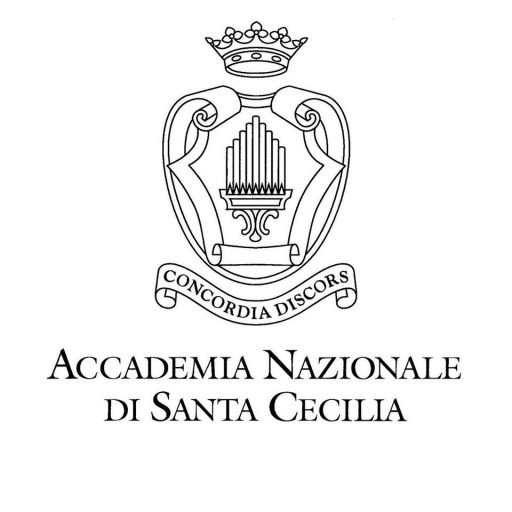Photos of university / #ouranu
Precision Instrumentation and Measurement (Advanced) at the Australian National University offers students a comprehensive and in-depth understanding of the principles, techniques, and technologies involved in the design, calibration, and application of high-precision instruments and measurement systems. This advanced program is tailored for students who have a background in physics, engineering, or a related discipline and are interested in developing specialized skills in instrumentation, signal processing, and measurement methodologies. The coursework emphasizes both theoretical foundations and practical applications, ensuring graduates are well-prepared for careers in research, development, and industry sectors that require expertise in precision measurement and instrumentation. Students will engage with topics such as sensor technology, data acquisition systems, instrumentation design, metrology, calibration techniques, and advanced data analysis. The program also integrates laboratory work, project-based learning, and collaborations with industry partners to provide real-world experience. Graduates of this program will possess the capability to develop and optimize measurement systems, troubleshoot and calibrate instruments, and contribute to innovation in fields such as manufacturing, aerospace, environmental monitoring, and scientific research. The curriculum is carefully structured to build incremental knowledge, beginning with fundamental principles and progressing towards complex system integration and management. With access to state-of-the-art laboratories and facilities at ANU, students will have unparalleled opportunities to apply their learning directly to practical problems. This program is ideal for those aiming to contribute to technological advancements through improved measurement accuracy and instrumentation solutions, or pursue further research or doctoral studies in related disciplines.
The Master of Precision Instrumentation and Measurement (Advanced) at the Australian National University offers a comprehensive curriculum designed to equip students with advanced skills in the development, application, and analysis of precision measurement systems. This program emphasizes the fundamental principles underlying the measurement of physical quantities such as length, force, temperature, and electromagnetic signals, and explores cutting-edge techniques used in research and industry. Students will gain in-depth knowledge of sensor technology, data acquisition, calibration, and signal processing, enabling them to develop innovative solutions for complex measurement challenges.
The program combines theoretical coursework with practical laboratory experience, ensuring graduates are well-prepared for careers in high-technology industries, research institutions, or further academic pursuits. Core courses include topics such as advanced measurement techniques, instrumentation design, and data analysis, along with electives that may cover areas like nanotechnology, quantum measurement, and optical sensing. Throughout the program, students will have opportunities to work on real-world projects, collaborate with industry partners, and engage with current research initiatives led by distinguished faculty members.
Designed for graduates with a background in engineering, physics, or related fields, the Master of Precision Instrumentation and Measurement (Advanced) aims to foster both technical expertise and innovative thinking. Graduates will be capable of designing novel measurement systems, optimizing existing instrumentation, and interpreting experimental data with high accuracy. This program not only prepares students for immediate employment in technical roles but also provides a strong foundation for future research and development activities in precision measurement technologies. Overall, the program combines rigorous academic instruction with practical skills training to produce versatile professionals ready to contribute to advancements in science and industry sectors that rely heavily on precise measurement techniques.
A Bachelor degree or international equivalent with a grade point average of 5.5/7 with 8 Classes in the Area of Physics or Engineering.Mathematics at least at the level of MATH2305 (Ordinary Differential Equations and Vector Calculus)
The Precision Instrumentation and Measurement (Advanced) program at the Australian National University offers a range of financing options to support enrolled students throughout their studies. Domestic students may be eligible for government-backed funding schemes such as FEE-HELP, which allows students to defer tuition fees until they complete their degree and are earning a sufficient income. Similarly, Commonwealth Supported Places (CSP) may be available for eligible domestic students, providing a subsidized tuition rate that significantly reduces the financial burden of the program. International students are required to pay full tuition fees, which vary depending on the program specifics and year of enrollment. To assist international learners, the university offers scholarship programs, including merit-based scholarships, excellence scholarships, and various industry-sponsored awards, designed to offset tuition costs and living expenses. These scholarships are highly competitive and often require an application process, including academic transcripts, references, and personal statements. Additionally, students may access external funding sources, such as government grants or bursaries offered by industry partners, which are aimed at promoting advanced research and specialization in precision instrumentation. The university also provides comprehensive financial aid guidance services to help students identify appropriate funding options and navigate the application processes. Students are encouraged to explore part-time work opportunities on-campus and in the local community, which can provide supplementary income alongside their studies. Furthermore, the program's association with technological and industrial sectors may facilitate internships or placement programs that offer stipends or financial incentives, enabling students to gain practical experience while supporting their financial needs. The university’s financial support services include budget planning, loan options, and workshops aimed at improving financial literacy, ensuring students are well-equipped to manage their finances during their academic journey. Overall, the ANU is committed to providing accessible support to ensure students enrolled in the Precision Instrumentation and Measurement (Advanced) program can focus on their academic and professional development without undue financial stress.
The Precision Instrumentation and Measurement (Advanced) program at the Australian National University is designed to provide students with an in-depth understanding of precision measurement techniques, instrumentation, and data analysis methods essential for advanced scientific and engineering applications. The program aims to equip graduates with the skills necessary to develop, calibrate, and maintain high-accuracy measurement systems used across various industries, including aerospace, manufacturing, healthcare, and research laboratories.
Students will engage with core topics such as sensor technology, signal processing, calibration methodologies, and quality assurance in measurement systems. The curriculum emphasizes both theoretical foundations and practical skills, with laboratory sessions that include hands-on training in using modern measurement equipment and software tools. Graduate students will also participate in research projects that involve designing and improving measurement systems, applying statistical methods to evaluate data, and ensuring compliance with industry standards and regulations.
The program is tailored for individuals seeking careers in research institutions, government agencies, or industry roles that require advanced knowledge of precision instrumentation. It covers contemporary challenges in measurement science, such as noise reduction, uncertainty analysis, and system integration, preparing students to innovate and improve measurement solutions in complex environments.
The program duration typically spans one to two years, depending on whether students enroll in a coursework master’s or an advanced research pathway. Admission requirements generally include a relevant undergraduate degree in engineering, physics, or related fields, with a strong background in mathematics and experimental sciences. Graduates of this program are well-positioned for roles such as calibration engineer, measurement scientist, instrumentation specialist, or quality assurance manager.
Overall, the Precision Instrumentation and Measurement (Advanced) program at ANU combines rigorous academic training with practical application, fostering expertise in the development and deployment of high-precision measurement systems that are vital for technological advancement and scientific discovery.








